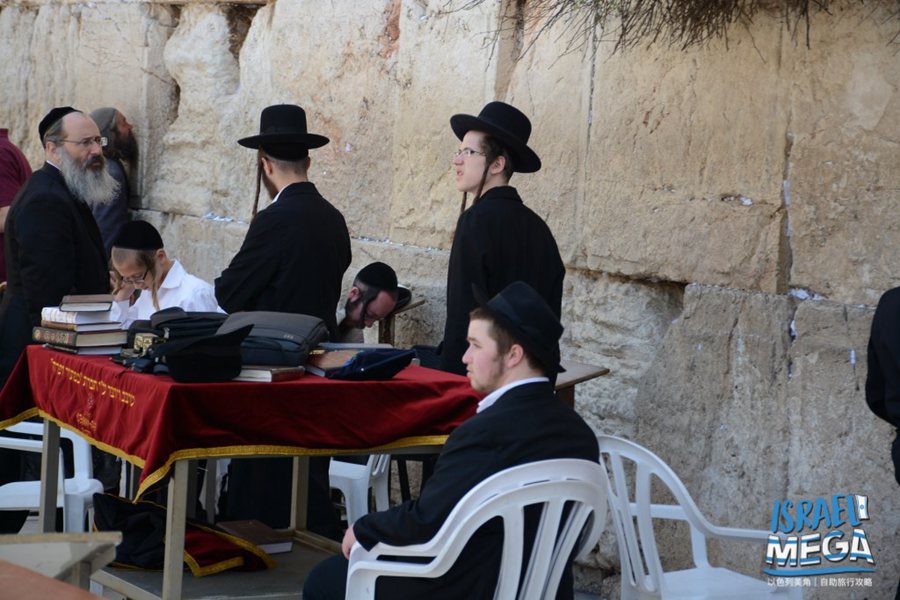The most important prayer for Jewish people every day is the shema prayer- שמע. When God brought the people out from Egypt, His reminder to them was to love God. This prayer is called the Shema prayer, because “Hear” is the first verb of this verse.
“Hear O Israel, the Lord our God, the Lord is one. Love Adonai your God with all your heart and with all your soul and with all your strength.” (Deu 6:4-5)

This is the First Commandment, and this is what Yeshua (Jesus) taught us.
And He said to him, ‘You shall love Adonai your God with all your heart, and with all your soul, and with all your mind. This is the first and greatest commandment.” (Matthew 22:37-38)
Praying the ‘Shema’ (שמע) Prayer
The shema prayer in Hebrew goes like this:
Shema Israel Adonai Eloheinu, Adonai Echad… Ve ahav ta et Adonai Elohecha b’chol livavcha o vechol nafishcha o vechol meodekha.
When Jewish people pray, you will see them using tefilin, which is a black box on the forehead and on the arm. Why do they use it? It’s a commandment from the Scriptures.
Bind them as a sign on your hand, they are to be as frontlets between your eyes, (Deu 6:8)

And the mezuzah is also a commandment. Like the tefilin, there is also scroll of parchment inside.
and write them on the doorposts of your house and on your gates. (Deu 6:9)

The Love Letter ש “sh”
It is noticeable that there is a letter on the mezuzah in the picture above, or just about everywhere in Jerusalem. The Shema Prayer is marked by the first letter “sh” ( ש ), not so coincidentally, God’s name is El “Sh”addai. The same letter.
And the shape of Jerusalem is a ש . It means everywhere in Jerusalem is a reminder to the people of Israel to love God. Or maybe the other way around.
When Jewish people obey the commandment and bind these straps, it is to remind themselves again and again the greatest commandment- to love God. The shape should look like ש on the back of a hand and on the arm.

And on this tefilin, there’s one letter only, and it is ש.

You can say the love letter here is ש.
About the Verb “Shema” שמע
There are many meanings in Hebrew on ‘shema’.
1. Can your ear “hear”
2. God has “heard” your prayer
3. God “leans to hear ” your prayer
4. This is an order that you should “listen” to
Hey! Listen to Him!
For thousands of years Jewish people keep this commandment and pray the shema prayer שמע. This is the most familiar prayer of all time, this is the ‘theme’. But suppose you were a Jew, and this is your prayer every day, including yesterday morning, last night, this morning…. you repeat “Hear O Israel” or “Listen, Israel”.
One day God spoke. Instead of saying “Listen”, He says, “Listen to Him!”
To whom? “My Son, whom I love”
It must be shocking why would God say this? It’s not something you take lightly….. if God really said that.

Peter, John and Jacob (James) had the background of the ‘shema’ prayer, because they were all Jews. They were pretty excited when they saw Elijah and Moses, but when the voice came out and said
“This is My Son, the One I have chosen. Listen to Him!”
And after the voice happened, Yeshua was found alone.
They kept quiet and told no one in those days any of the things they had seen. (Luke 9:35-36)
You could see their face changed at “Listen to Him”.
It was so wonderful to see their rabbi Yeshua with Elijah and Moses. But what God spoke to them was challenging everything they thought they knew.
From that culture, they must know why God would share this message in that location, in that setting, and in that time. In front of the greatest prophets God just told them “Hear O Israel. Listen to Him.”.
That’s THE prayer that they had been praying for their entire lives.
They kept this secret to themselves, because it was ‘too much’.

They took time to understand what it really meant. The Father chose to honor the son in that setting. Two verses to ponder.
“Father, I also want those You have given Me to be with Me where I am, so that they may see My glory—the glory You gave Me, for You loved Me before the foundation of the world.” (John 17:24)
Who, though existing in the form of God, did not consider being equal to God a thing to be grasped. (Philippians 2:6)





